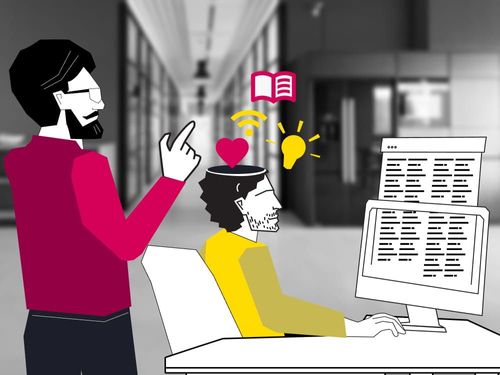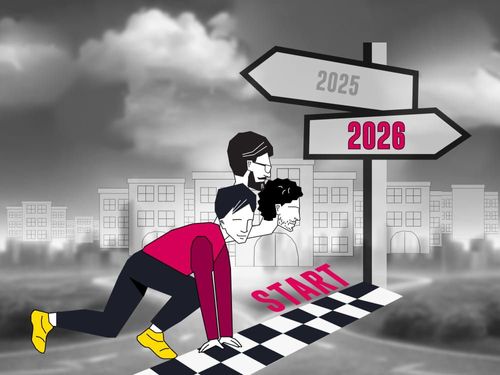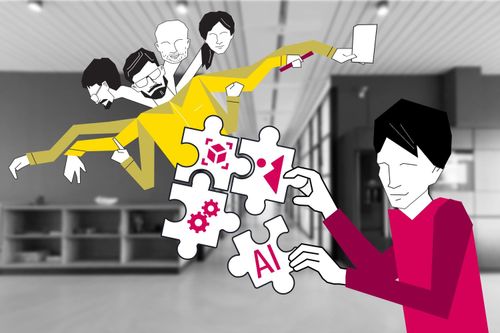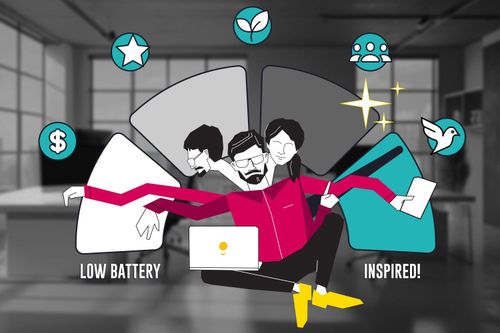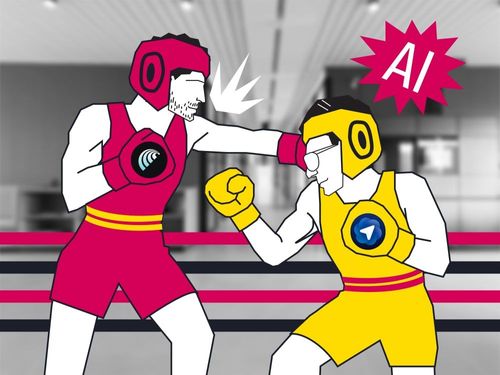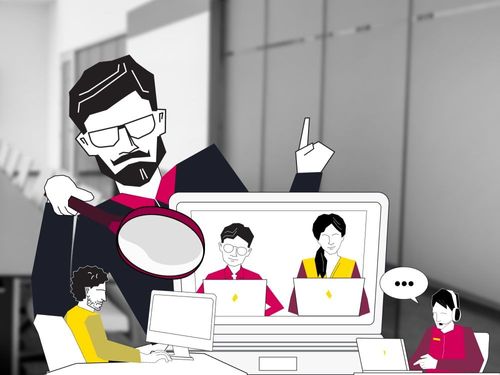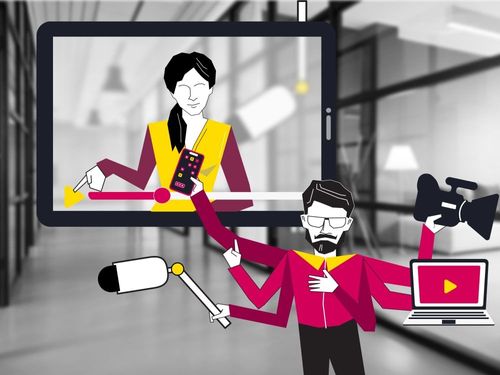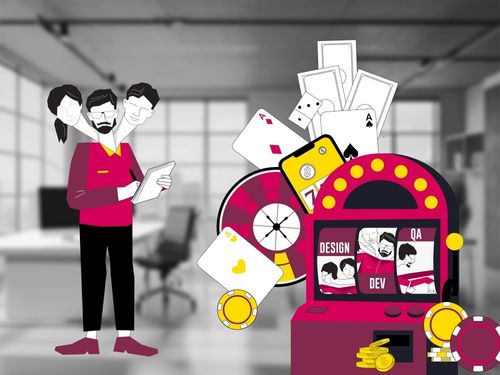
Hiring remote workers is like a treasure hunt. You're trying to find gems that are able to shine from afar, but beware! It is a rocky road. So, we, at Smartexe, have created a guide to help you recognize a potential red flag.
Let’s break down the major red flags you should keep in mind while hiring and during a trial period.
1. The Job Jumper
Ever come across a resume that looks more like a world tour schedule than a career path? A candidate who's tried everything from tech support to turtle training. Too much jumping around may indicate the candidate is still looking for what they're meant to be doing or perhaps picking up job titles as souvenirs.
A multi-talented individual is like a Swiss army knife, they could be handy in a small team. But if you are looking for a candidate with strong skills, it is not your type.
Potential consequence:
- Lack of long-term commitment can imply that a candidate is unwilling or incapable of committing to a job or organization in the long term.
- Can point to deeper issues, such as difficulties in collaborating with teams, managing workloads, or other professional challenges.
- Training and onboarding resources: that kind of candidate type might be more of a risk for early departure, perhaps investing valuable resources.
But in some cases, job hopping can and should be forgiven. Industry trends (where job-hopping can be more common), individual circumstances (Like relocation or pursuing further education), or a genuine search for a more fulfilling career direction can also explain job hopping.
2. The Elusive Enigma
If communication with a candidate is like trying to catch smoke with your bare hands, you should think twice before hiring. Such a candidate for a team leader or project manager position can mismatch deadlines, and have a negative effect on the productivity of all teams.
Potential consequence:
- Inefficient task delegation: A leader who is unable to articulate tasks and expectations clearly can result in ineffective task delegation. As a result, the team will be unsure of their responsibilities, causing delays and confusion.
- Reduced productivity: Unclear communication with a leader can cause confusion and uncertainty among the team, reducing overall productivity and morale.
3. The Lukewarm Enthusiast
Observe, while interviewing, the way the candidate reacts to details about the project. If his/her enthusiasm is as chilly as yesterday's coffee, then there could be a problem.
True, not every job is about saving the world, but a spark of enthusiasm will transform even the dullest of drudgery. Look for flickers of true interest that show they're not just here for the ride but ready to steer the ship with zeal.
Potential consequence:
- Stifled innovation: As a result, new ideas can be denied, and new technology may fail in implementation.
- The low overall spirit of the team: leads to a more subdued and less motivated work environment.
- Customer and stakeholder perceptions: A zero level of enthusiasm may lead to negative experiences, potentially harming the company's reputation and relationships with key stakeholders.
Keep in mind that some people aren’t great at showing enthusiasm. Ask them how they feel about the project and listen to the words they use, not just their tone of voice.
4. The Mysterious
In remote work, everyone needs to speak up. Introversion is not always a red flag. / Introverts bring deep thought, creativity, and focus to their roles.
However, a candidate who appears too quiet, hesitant to use video during calls, and does not make significant contributions during interviews may signal potential issues within the remote workplace. Turning on a camera is not always necessary, frequent video communication may help improve team cohesion and trust. And if a candidate struggles to express themselves in an interview, he or she may have similar challenges in daily remote interactions.
Potential consequence:
- Communication breakdowns: If the team member is consistently too quiet or unresponsive, key information may not be shared on time, which results in decision-making and workflow issues.
- Team integration challenges: It might lead to isolation or a lack of cohesion within the group.
5. The Lone Wolf
Modern software development methodologies, such as Agile, Scrum, and Waterfall, emphasize teamwork, iterative development, and continuous communication. A Lone Wolf would find it hard to adapt or be resistant to these methodologies, which may influence teamwork and project performance.
While autonomy and the ability to work independently are strengths, a too-strong inclination towards solitary work can be a red flag. Prioritize candidates with no problem sharing responsibilities and capable of collaborating with other experts.
Potential consequence:
- Scalability and knowledge transfer issues: This candidate poses significant risks when scaling up projects or during knowledge transfer and succession planning.
- Cohesion problems: This results in loose modules, variance in coding, and challenges in integrating work into a cohesive whole.
- Problem-Solving: A desire to do all by themself leads limits the exchange of ideas, reducing the team's capacity for innovation. As a result, the development process becomes longer and less effective.
6. The Bank of Excuses
Life unpredictably influences work. If you see a candidate make too many excuses, even in ordinary situations, it’s a red flag.
A candidate who often makes excuses may not be able to take responsibility for his/her actions.
As an employer, you should prefer individuals who can take responsibility for mistakes, learn from them, and try to improve, but not those who shift blame or avoid taking responsibility.
Potential consequence:
- Lack of problem-solving skills: A frequent excuse may be that they lack the initiative or imagination to seek solutions, but rather depend on excuses for why something cannot be done.
- Resistance to criticism: If a candidate always uses excuses, they may be resistant to criticism, which may hinder their improvement and contribution to the team.
7. The Critique
During the hiring process, it's essential to see how a candidate handles feedback and criticism. The "Critique Guru" is an applicant who provides excessive nonconstructive criticism of the previous job or employer.
An over-critical person may struggle to adapt in a team that values continuous improvement.
Potential consequence:
- Resistance to personal development: A candidate is primarily interested in the flaws of others, rather than analyzing their own weaknesses.
- Handling of feedback: As a teammate, such a person may not respond well even to constructive feedback, especially if it's negative.
8. The Distractable
Distractions never cease, and the line between personal and professional life becomes extremely thin; one's ability to concentrate and focus is of utmost importance. Typos do happen, but if candidates' answers are illogical or unrelated to the topic, you should take note. If attention to detail is necessary, maybe this individual is not your top choice.
Potential consequence:
- Quality of work: A careless applicant may be more prone to making mistakes, overlooking critical details, or failing to meet the quality standards expected.
- Off-topic responses: Cause a team distraction and change of focus, waste of time and resources.
To sum it all up: Yes, red flags do need to be considered, but also important to remember that the candidates are going to be really nervous during job interviews, so you may be looking at the red flags when there are none. Make sure your red flags are confirmed by multiple sources (resume, interview, LinkedIn, recommendations, etc.) before making your call.
Looking to hire remote developers who raise none of these flags? Maybe an organic team of professionals? Give us a ping.
Like the way we think? Follow us for more original content.

